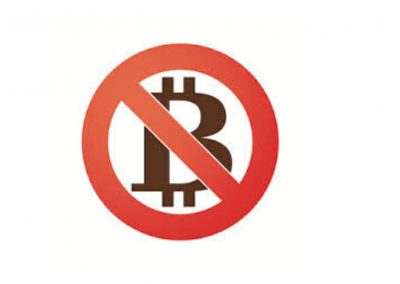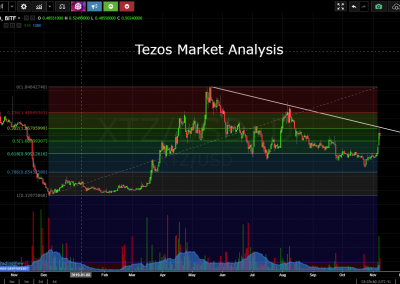Can We Really Trust Centralized Exchanges?
If you want to buy, sell, or trade cryptocurrencies, then you two main options are centralized exchanges and decentralized exchanges. Both come with risks and benefits, but most people on the whole use centralized exchanges.
This is surprising when you consider how often hackers and government regulations target centralized exchanges. Yet, despite all this, they are still the preferred method for those that use cryptocurrencies. But we really trust centralized exchanges?
What Is a Centralized Cryptocurrency Exchange?
Centralized cryptocurrency exchanges are places where users trade cryptocurrencies through a third party platform. A few examples of these platforms are BitFinex, Binance, and GDAX. With an exchange like CoinBase (run by the same people who run GDAX), a person can simply sign up, deposit money for the select amount of crypto and purchase it.
The exchange takes the money, and the person receives the cryptocurrency, usually Bitcoin, but sometimes Ether, LiteCoin, and a few other altcoins.
Once the platform switches the user’s funds for cryptocurrency, the user can then trade for other cryptos, pay for goods, or sell and buy other altcoins of their choosing. And for most casual users, centralized exchanges provide a somewhat secure wallet on the exchange for users to store their crypto.
What Are the Problems of a Central Exchange?
While centralized exchanges offer an easy starting point for a lot of investors unfamiliar with the cryptosphere, there are some inherent problems in their construction. To begin with, they’re ironically centralized. When you consider that Bitcoin was created as a decentralized currency aimed at promoting peer to peer transactions without the use of an intermediary, centralized cryptocurrency exchanges are counterintuitive to that ideal.
Aside from the ideological contradictions, because they are a centralized, third-party, these exchanges have several of the problems inherent in centralized systems. They charge fees to process transactions; they are targets for attacks from hackers; they easily surrender to government regulations.
Platforms like CoinBase and Binance are incredibly profitable. Every transaction you complete over their exchange costs a nominal fee. These fees add up leaving these companies an annual profit in the billions.
Centralized exchanges are also extremely vulnerable to hackers. Anytime the news breaks with a story involving stolen cryptocurrency, it usually means hackers successfully attacked a centralized exchange. Because they are centralized, these siloed platforms fall victim to hackers regularly, surrendering their users’ crypto without much fight.
Increasing government pressure from the IRS, SEC, CFTC and other organizations in the United States alone that are trying to regulate cryptocurrencies mean that centralized exchanges are often required to collect information from users.
CoinBase, for example, requires users complete a Know Your Customer (KYC) form and provide a photocopy of an ID to prevent money laundering. And these aren’t the only government imposed regulations that centralized exchanges have to follow.
There is also the risk of the exchange itself tampering with your investment. When you store your coins on a centralized exchange, the exchange has full access to your wallet.
BitFinex illustrated the consequences of this when they reduced everyone’s wallet by 36 percent to spread out the damage done when hackers made off with several million in crypto.
In a sphere where scams do happen, giving a centralized exchange unbridled control of your money while it’s on their platform puts you in an uneasy position. Not only do you have to hope they can protect your funds, you also have to trust that they won’t shut down and run away with your funds.
Technical difficulties can also cause financial losses too. Unlike the stock market, crypto exchanges run 24/7. When an exchange has to close for maintenance, you’re locked out of any coins you left on that exchange. And because you cannot access those funds, you also lose out on any potential earning that you could have gained during that period.
What Are Alternatives to Centralized Exchanges?
Without sounding simplistic, the next best alternative to a centralized exchange is a decentralized one. There are several options for decentralized exchanges (DEX). These changes use Smart Contracts and Atomic Swaps to exchange cryptocurrencies between parties without an intermediary.
Problems with Decentralized Exchanges
Decentralized exchanges are not without their problems. Lower liquidity, sophisticated user interfaces, and lost private keys have made decentralized exchanges problematic.
Trade volume is key to liquidity. The higher rate at which users trade over a platform makes it easier to move cryptocurrencies between individuals. Think about it. If there are only 10 people in a room you can trade with, you’ll have to wait longer for a transaction than if you’re in the same room with 1,000 people. This means liquidity is a problem in these smaller, decentralized markets.
Decentralized exchanges often require users to directly interact with the interface as opposed to automatic processes similar to other exchanges. This makes the trading process more laborious and also allows for other parties to manipulate transactions due to how much longer it takes to find people willing to trade crypto. The interfaces are also much more complicated to use than ones like CoinBase.
And while your cryptocurrency is much safer on a decentralized exchange than a centralized one because you hold the keys to your wallet, people have been known to lose their keys. Without a central authority to appeal to, if you lose your private key, there is absolutely no way to access your crypto. So even if your crypto is far more secure from hackers on a decentralized exchange, you have the real possibility of losing your investment due to simple human error.
Finally, decentralized exchanges cannot currently function without centralized exchanges because they have no way to move fiat currency into and out of the system. Only centralized exchanges currently allow that. This means that unless you live in a country that has adopted widespread use of cryptocurrencies, you have to at least start out on a centralized exchange before moving onto a decentralized one. And if you want to move that money out of the exchanges, you have transfer it back through that intermediary, exposing yourself to the previously mentioned threats.
Are Decentralized Exchanges More Trustworthy?
When it comes down to the bottom-line of trust, then you have to look past convenience, ease, and mass adoption. Decentralized exchanges are much more difficult to hack, government pressure can’t sway them, and your crypto belongs to you and you alone.
Until there are better systems that allow for fiat to move in and out of decentralized exchanges, people need centralized exchanges. However, it is prudent for any user of these types of exchanges to exercise caution and diligence when using these platforms. Remember that when your assets are on their platform, they are vulnerable to hackers, governments, and even the exchange itself. Try to keep use limited and never leave more crypto than you can afford to lose on a wallet in an exchange.











